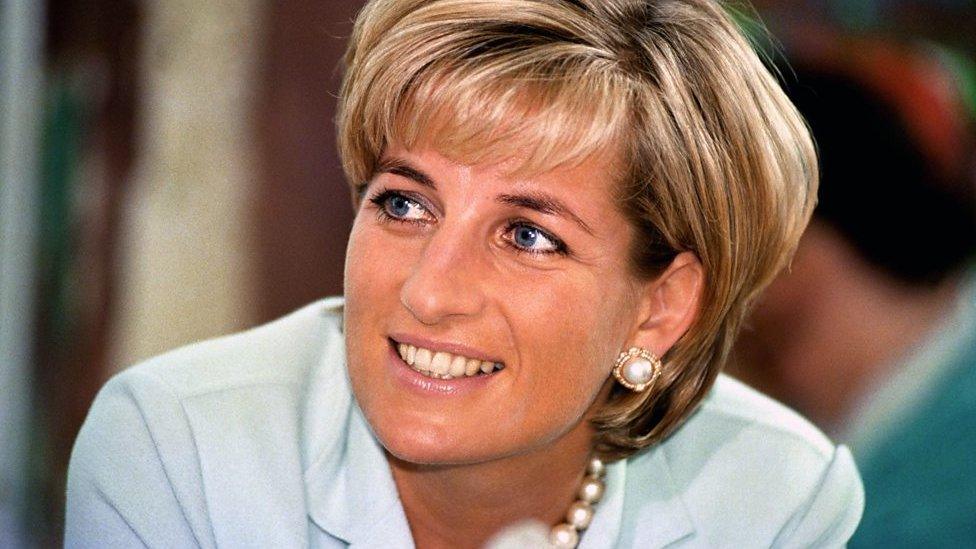Prince Harry 'very glad' to walk behind Diana's coffin
- Published
Prince Harry criticises the paparazzi for taking pictures of his mother "while she was still dying"
Prince Harry has said he is "very glad" he joined the funeral cortege for his mother, Princess Diana.
Harry had previously said walking behind her coffin aged 12 was something no child "should be asked to do".
He has now told the BBC he doesn't "have an opinion whether that was right or wrong", but "looking back on it", he is glad to have been part of the day.
The prince also paid tribute to his father for the way he took care of them after Diana's death in a car crash.
"One of the hardest things for a parent to have to do is to tell your children that your other parent has died," Harry said.
"How you deal with that I don't know but, you know, he was there for us."
Harry and his brother, Prince William, have spoken in a series of interviews leading up to the 20th anniversary of their mother's death on 31 August.
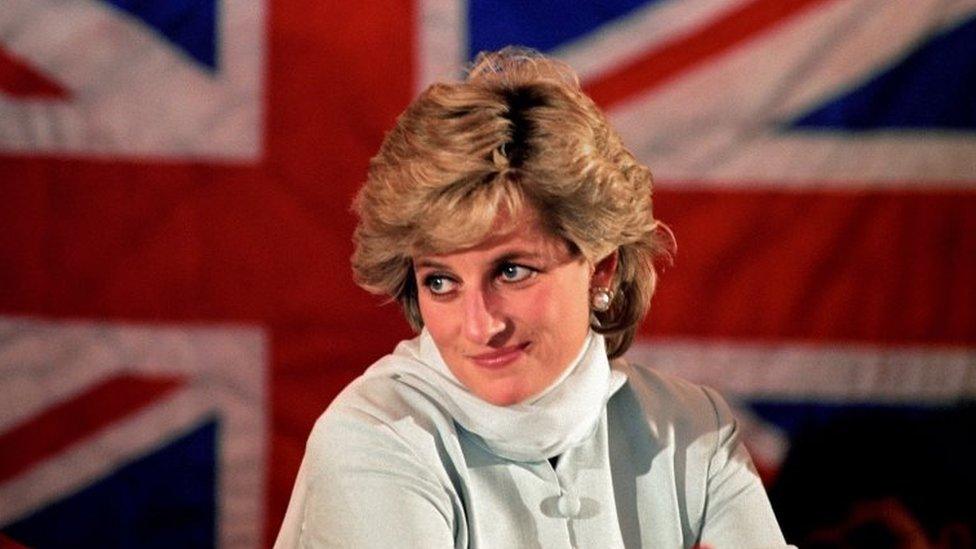
Princess Diana was killed in a crash in Paris, aged 36, as the car she was in sped through the Pont de l'Alma tunnel followed by paparazzi photographers.
At her inquest in 2008, external it was ruled that the gross negligence of her driver, Henri Paul, who was drunk, and the paparazzi were to blame for the crash.
Prince Harry said: "One of the hardest things to come to terms with is the fact that the people that chased her into the tunnel were the same people that were taking photographs of her while she was still dying on the back seat of the car."
'Duty and family'
Prince William told Sunday's 90-minute documentary, Diana, 7 Days, walking behind his mother's coffin was "one of the hardest things I've ever done".
The Duke of Cambridge, who was 15, recalled using his fringe as a "safety blanket" during the "very long, lonely walk".
"I felt if I looked at the floor and my hair came down over my face, no-one could see me," he said.
"It wasn't an easy decision and it was a sort of collective family decision to do that... there is that balance between duty and family and that's what we had to do."
The balance, he added, was "between me being Prince William and having to do my bit, versus the private William who just wanted to go into a room and cry, who'd lost his mother".
William and Harry were joined by their father, the Prince of Wales, grandfather, the Duke of Edinburgh, and uncle, Earl Spencer, in the procession through London.
Prince William says he wouldn't let the death of his mother break him
In June this year, Prince Harry was quoted in US magazine Newsweek saying he did not think the same situation "would happen today", adding that no child should be expected to do the same "under any circumstances".
But speaking to the BBC, Harry echoed his brother, describing the move as "a group decision", and one that, in hindsight, he was happy with.
Earl Spencer, Diana's brother, recently described the decision to include the young princes in the procession as "bizarre and cruel".
Royal commentator Richard Fitzwilliams said the change in tone from Prince Harry over his involvement in the funeral reflected the realisation that him taking part had provided comfort to millions of people at the time.
"This latest documentary is trying to put what happened into context. (Harry's comments) puts it in a perspective that he is glad he did something - even if it didn't help him at the time - that clearly brought a tremendous comfort to the millions that were watching," he told the BBC.
"The fact they were there, there's no question that helped others."

State of shock
Analysis by Sarah Campbell, BBC News royal correspondent:
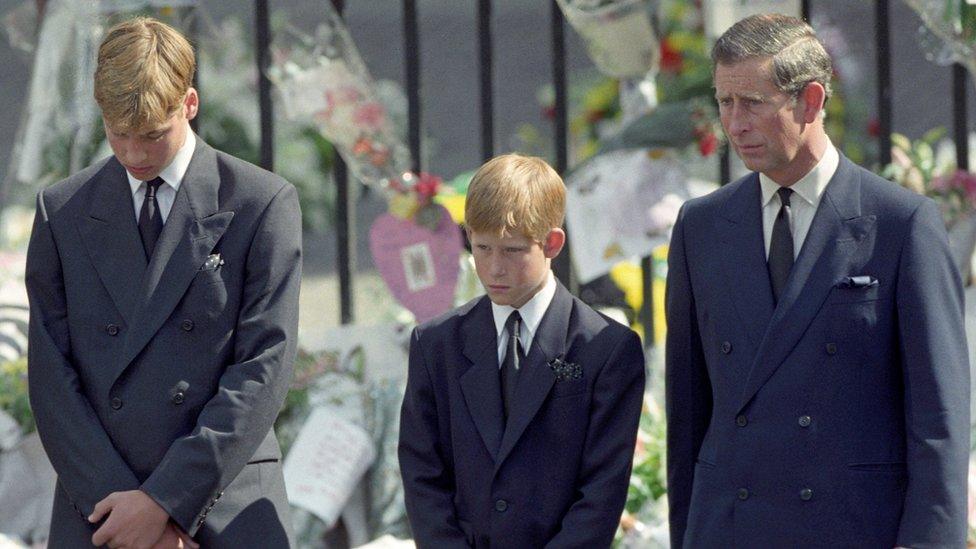
It is hard to look at the pictures of 15-year-old William and 12-year-old Harry walking behind their mother's coffin and not wonder what was going through their young minds - and now we know.
Harry said he was glad he had never cried in public. William constantly referred to "duty" - that was why he had to walk behind the coffin when a part of him just wanted to go away and cry.
In this latest documentary marking Diana's death, the two princes describe being in a state of shock as people grabbed and wailed at them.
There are revealing insights throughout - William describing his thankfulness that they stayed in Balmoral with the Queen, ensuring they had "privacy to mourn".
In all the coverage in the lead-up to the anniversary, very little has been said about Prince Charles. But Harry shed some light on his father's role, saying: "He was there for us… he tried to do his best."

The princes also described seeing their mother deeply distressed in the years before her death after run-ins with photographers, who waited in "a pack" for her "every single time she went out".
"And I mean a pack, like a pack of dogs, followed her, chased her, harassed her, called her names, spat at her, tried to get a reaction to get that photograph of her lashing out, get her upset," William said.
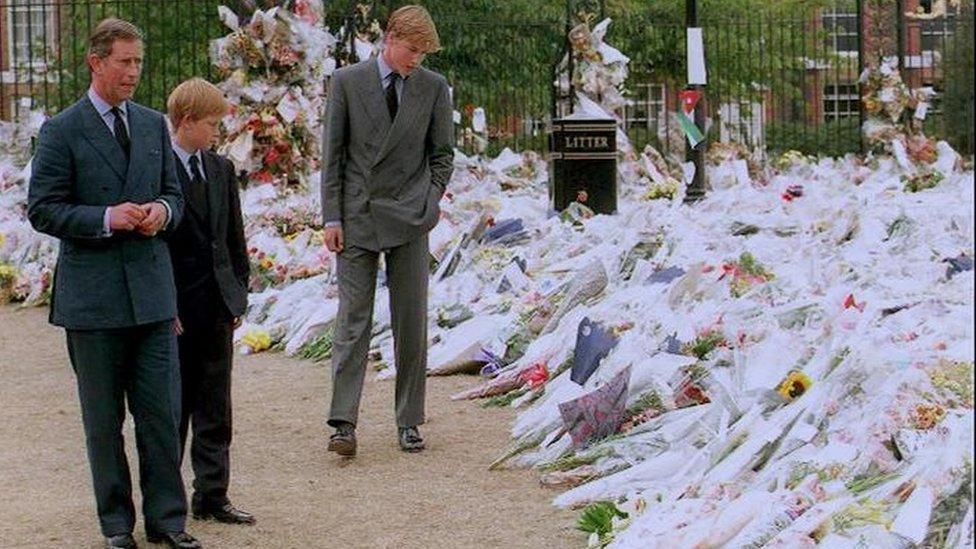
The Duke of Cambridge said he had struggled with the outpouring of grief from the public, when they "didn't even know her"
The documentary also includes interviews with Diana's sister, Lady Sarah McCorquodale, and former Prime Minister Tony Blair.
Mr Blair recalled being woken on the day Diana died by a policeman at the foot of his bed, and described his "shock" at learning the "most famous person in the world" had died.
He said the Queen was "obviously very sad" when he first spoke to her, but that she also seemed to be aware, as he put it, "there was going to be a risk that the country's sense of loss turned to a sense of anger and grievance, and then turned against the monarchy".
"She was concerned about the monarchy herself because the Queen has a very strong instinct about public opinion and how it plays," he said.
Diana, 7 Days, will be broadcast on BBC One at 19:30 BST on Sunday, 27 August.


Did you meet Princess Diana? Did you work for one of her charities or benefit from her work? What is her legacy? Email haveyoursay@bbc.co.uk, external with your stories.
Please include a contact number if you are willing to speak to a BBC journalist. You can also contact us in the following ways:
WhatsApp: +44 7555 173285
Send pictures/video to yourpics@bbc.co.uk, external
Tweet: @BBC_HaveYourSay, external
Text an SMS or MMS to 61124 (UK) or +44 7624 800 100 (international)
- Published22 June 2017
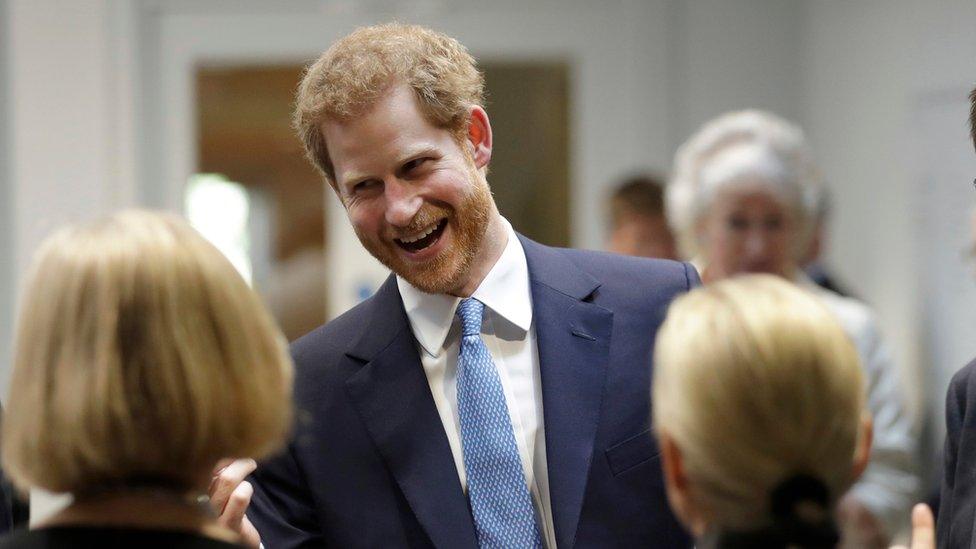
- Published17 April 2017
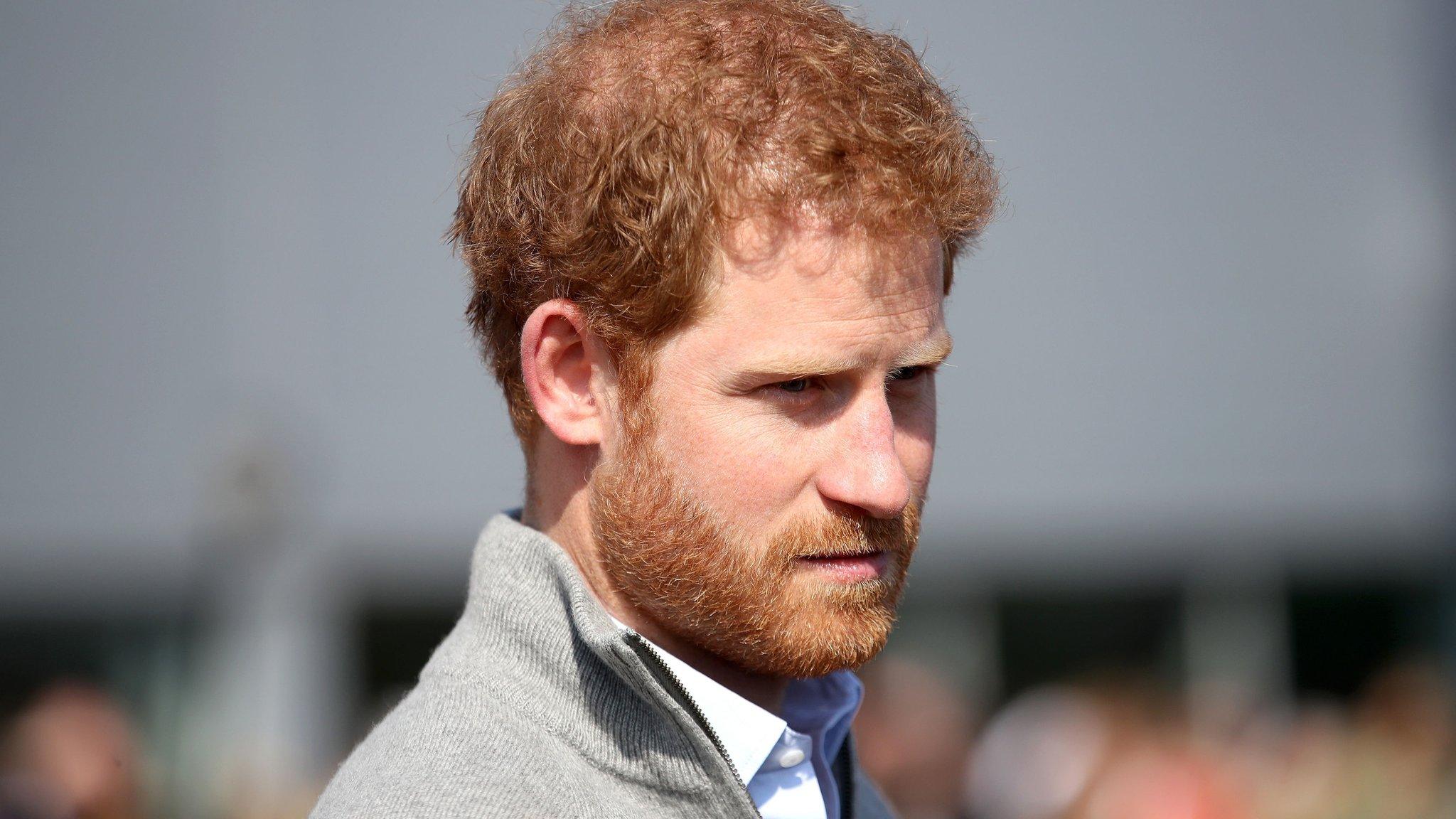
- Published14 August 2017
